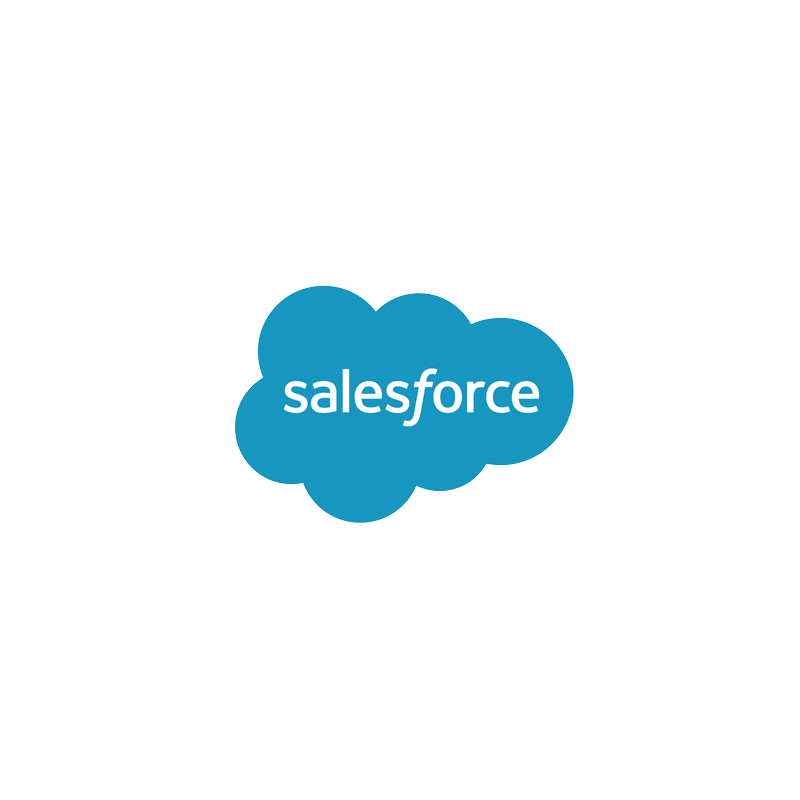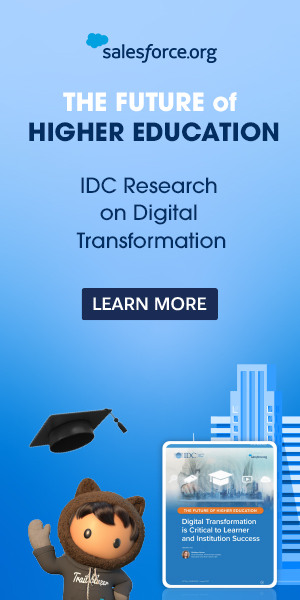
Salesforce Advisor Link is connecting students with campus support services and enabling universities to become lifelong partners in their students’ success
Student success is about so much more than academic performance. Universities need to engage with their students in a more seamless manner to support the changing needs and expectations of students to ensure long-term student success. Further, students seek a unified experience as they navigate university life ranging from pastoral care to academic support and career services.
Salesforce.org developed Salesforce Advisor Link so that university stakeholders can access a single view of every student, bringing data together from disparate sources to predict issues before they become problems and advise students in a personalised way. The offering is part of Salesforce.org Education Cloud, a powerful set of technology solutions for higher education, which many institutions already use. By combining these systems – such as attendance tracking, library use and email open rates from across the university – advisers can act efficiently and proactively in response to the information in front of them.
“You could be looking at first-year dropouts or incidences of mental health issues,” explains Nathalie Mainland, vice-president of higher education solutions and strategy. “If there’s a change in someone’s behaviour, such as they’re not going to the library, you can send an email. Or if there are worries about accommodation or finances, you can speak to them and have that conversation before it becomes an academic discussion.”
The other advantage of aggregating all of this data is the speed with which advisers can support students. Allowing the system to handle basic tasks, such as sending out reminder texts and emails, means that they can spend more time offering guidance. Universities that use Salesforce.org Education Cloud have reported a 12 per cent increase in student engagement and satisfaction – by being able to contact students more efficiently – and a 10 per cent increase in retention, as well as better response times and reduced support costs. “Previously, if you sat down with one university service, they’d have lots of monitors or systems open – they’d be burning time just trying to piece together what’s happening,” says Mainland.
Mark Lombardi, president of Maryville University and a Salesforce.org customer, puts it succinctly: “Everything in the classroom should be challenging, but everything outside should be a service and should be easy.”
Many students are frustrated by having to go through arduous processes when seeking IT support, career guidance or registering for a university service because they increasingly expect a consumer-level experience when using digital platforms at university.
Graduates face the prospect of changing careers multiple times and having to learn skills for roles that do not yet exist. Sixty-five per cent of children entering primary school will be working in completely new job types, according to an estimate cited by the World Economic Forum.
Because of this, it is important to recognise how universities can become a lifelong partner for the individual. “It’s a whole journey,” says Mainland, “from their path to admission to their student experience through to graduation and beyond. In an ever-changing employment and skills market, graduates may wish to top up their learning or access alumni services to support their next career move. Using the data from all of these touchpoints means that universities can be a resource throughout that journey.
With many students questioning the value of a degree in today’s employment market, universities have even more responsibility to add value to their student experience and develop lifelong relationships. It is about the bigger picture, says Mainland: “Universities are increasingly recognising that student success is everyone’s job. It’s up to everyone in the community.”



























